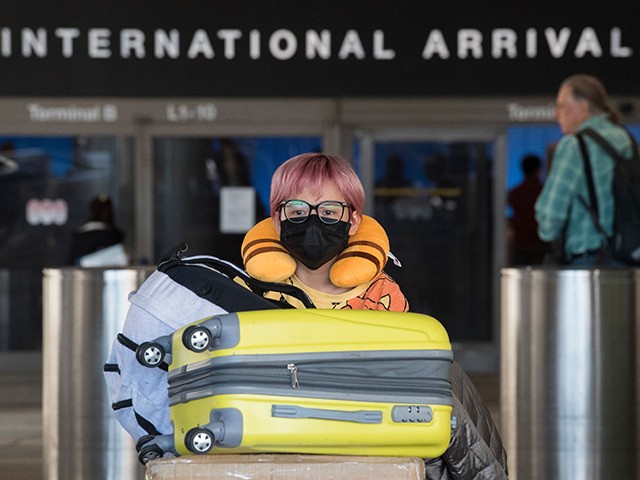The government’s Home Office formally quarantined just 273 people out of the 18.1 million arrivals by air, land, and sea to the UK in the three months leading up to March’s coronavirus lockdown.
The figures show that between January 1st and March 22nd, 2020, a combined 241 people on three evacuation flights from Wuhan — understood to be the origin of the Chinese virus — and 32 individuals flown from Tokyo, after being transferred from the infected Diamond Princess cruise ship, were sent to various quarantining facilities across the country.
The Guardian reports that it understands the Home Office estimates that of the more than 18 million people who entered at that time, tens of thousands had come from high-infection areas without quarantine, testing, or social distancing.
Home secretary Priti Patel has said that the UK’s refusal to shut down the country’s external borders was based on advice from the Scientific Advisory Group for Emergencies (Sage). However, Labour MP and member of the Home Affairs Select Committee Stephen Doughty questioned: “On what scientific basis were a handful of flights from Wuhan and one from a Tokyo singled out for extreme attention? But not a single flight from Northern Italy, Spain or the U.S.?”
Mr Doughty added that the fact that arrivals from high-infection areas may have continued to travel around the UK with “little or no adherence to social distancing, and with no checks or protections at the border” was “deeply disturbing”.
“Yet arrivals continue to this day — with no formal quarantine requirements. It is simply staggering,” he added.
While airline passengers are down 99 per cent on this time last year, some 100,000 people a week — 15,000 a day — continue to arrive into the UK without restriction. Passengers have accused airlines like British Airways of still letting too many people on aeroplanes, making social distancing impossible.
Last month, reports suggested that the UK would introduce some kind of two-week ‘stay-at-home’ order for arrivals — a far cry from Singapore’s and Australia’s enforced quarantine, with government-chartered coaches picking up passengers by the plane-load and transporting them to hotels where they are instructed to remain in their rooms for 14 days.
Transport secretary Grant Shapps said this week that the government is considering the self-isolation orders, but only after the UK has got the current wave of coronavirus under control to prevent a second wave. That means that whilst Britons remain in lockdown in their own homes, thousands continue to enter the country without restriction every day.
The chief of Heathrow Airport last month called for the Home Office to conduct mass screenings of all new arrivals. However, procedures like temperature checks can only indicate infection for those that are symptomatic, but it can take between one and 14 days for symptoms of the Chinese virus to manifest.
While more than 100 countries worldwide have imposed some kind of travel restriction, the UK has enacted none, making it “an outlier”, according to Professor Gabriel Scally, the Royal Society of Medicine’s president of epidemiology and public health.
“It is very hard to understand why it persists in having this open borders policy. It is most peculiar,” Prof Scally said in comments reported by the Financial Times last month.
“Travel restriction by itself is of course not going to do the job. But all of these things are additive. It all adds up to beating the virus,” he added.

COMMENTS
Please let us know if you're having issues with commenting.